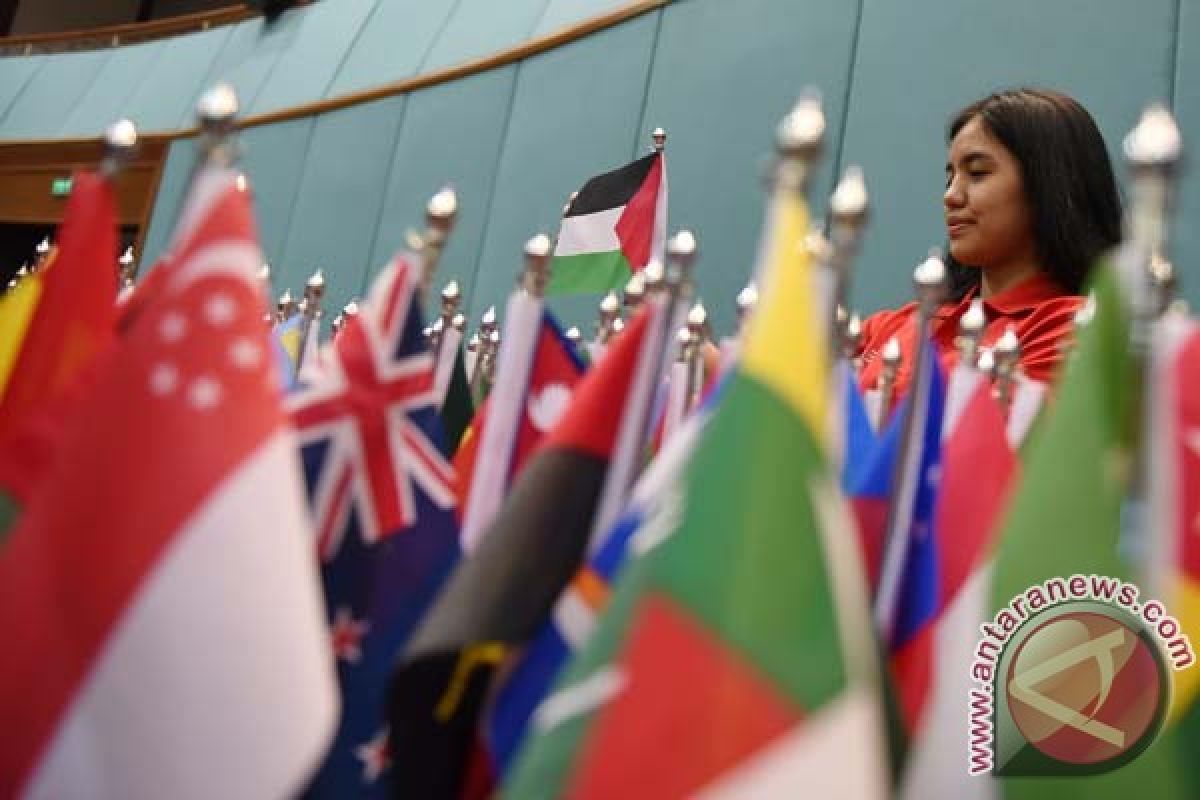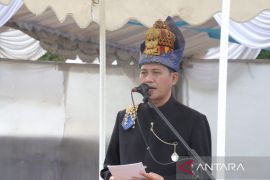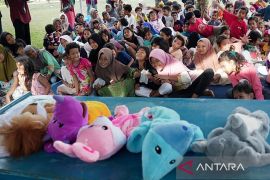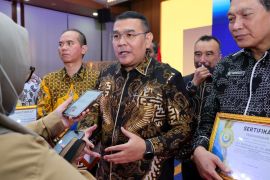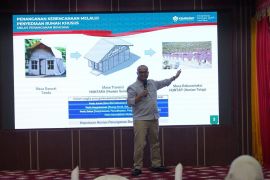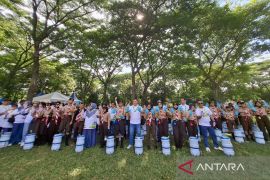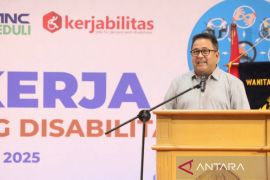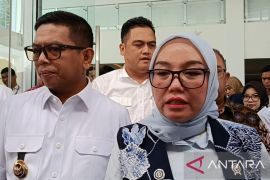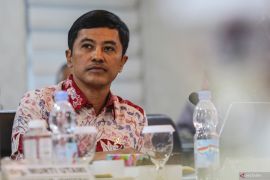In her opening speech at the Asian-African Ministerial Meeting (AAMM) here on Monday, Indonesian Foreign Affairs Minister Retno Marsudi highlighted the importance of cooperation among Asian and African countries to achieve common prosperity.
"We want to see a stable democracy, equality and respect for human rights, as well as cooperation among countries in Asia and Africa to achieve common prosperity," Marsudi remarked.
The AAMM was organized as part of the 60th anniversary celebrations of the Asian-African Conference (AAC), which will be held in Jakarta and Bandung from April 19 to 24.
She noted that growth in Asian and African countries is a must, and that Indonesia is ready to contribute and join efforts being made towards the end.
"The joint development of Asian and African countries is a must. Indonesia is ready to play a role and join the efforts," the minister affirmed.
The AAMM, which is scheduled to take place from 9:20 a.m. to 6 p.m. local time, is a follow-up of the Senior Officials Meeting (SOM), which was held on Sunday, April 19.
The SOM has agreed to the outcome of three drafts for the commemoration of the 60th anniversary of the AAC, including the Bandung Message, the enhancement of the New Asian-African Strategic Partnership, and the Declaration for Palestine.
Marsudi explained that to achieve greater political solidarity for a stronger and richer Asia and Africa, the Bandung Message should be translated into a concrete action, and for this, the document on Reinvigorating the NAASP would serve as a means to implement them.
The Reinvigorating NAASP document also outlines four steps to follow up with the implementation of the Bandung Message, including holding a commemoration every ten years, rotation every four years, meeting on the sidelines of the United Nations General Assembly every two years, and holding annual co-chaired meetings.
"I am confident that the comprehensive NAASP framework will initiate a new chapter in the Asian-African cooperation as it will allow countries of the two continents to cooperate through a structured, systematic, and intensive framework," she remarked.
The comprehensive NAASP framework will also bridge the gap between the Asian and African continents, both physically and in terms of solidarity.
Moreover, Director of Postgraduate Programs of Paramadina University Dinna Wisnu stated here on Monday that Indonesia needs to raise the points of the Bandung Declaration, or "Dasa Sila Bandung," produced during the first AAC in Bandung in 1955.
"The AAC is a strong forum. Indonesia should play its role by raising (points of) the Bandung Declaration to voice its concerns about problems faced by Asian and African nations," Wisnu noted.
In April 1955, the representatives of 29 governments of Asian and African nations congregated in Bandung to discuss peace and the role of the Third World during the Cold War era, economic development, and decolonization.
According to Wisnu, the core principles of the first AAC held in Bandung 60 years ago were political self-determination, mutual respect for sovereignty, non-aggression, non-interference in internal affairs, and equality.
These issues were of key importance to all participants in the conference, most of which had only recently emerged free from colonial rule.
During the concluding session of the conference, attendees signed a communique that included a range of concrete objectives.
These objectives included the promotion of economic and cultural cooperation, protection of human rights and the principle of self-determination, a call for an end to racial discrimination wherever it occurred, and a reiteration of the importance of peaceful coexistence.
"The principles of the 1955 Bandung Declaration are strategic to mobilize the strength and unity of developing countries across Asia and Africa," Wisnu stated.
In addition, she emphasized that the current economic problem is a common issue that needs to be addressed as several Asian and African countries are economically vulnerable as they do not have access to resources and possessed low bargaining power in the eyes of investors.
"So far, Indonesia has yet to take decisive steps to address this matter. In Africa, there are still many countries that do not possess adequate bargaining power while dealing with investors such as China. They can only have a soft voice when the relationship with their investor is imbalanced," she affirmed.
According to Wisnu, the bargaining power of these countries with investors is not strong due to rejection from international financial institutions.
Therefore, she noted that Indonesia should play its role as a balancing force in overcoming inequality that can help to maintain political stability and security in the Asia-Pacific region.
Furthermore, Teuku Rezasyah, an observer of international relations from the University of Padjadjaran, said that countries in the Asian-African region should establish a joint secretariat under the coordination of Indonesia and South Africa.
"It is necessary to form a joint secretariat for Asia and Africa by focusing on the coordination between Indonesia and South Africa. It would also be better if the AAC is conducted regularly, at least once in three years," Rezasyah remarked.
He noted that holding the conference regularly could be done as part of efforts to improve cooperation in various fields among countries in Asia and Africa.
The 60th anniversary celebrations of the AAC are being held from April 19 to 23 in Jakarta, while the AAC Historical Walk will be held in Bandung on April 24. The delegation will also hold the Asian-African Business Summit on April 21 and 22.
As many as 32 countries, or state leaders, along with delegations from 86 countries delegations, are attending the event this year.
(O001/INE)
EDITED BY INE/A014
(O001/KR-BSR/A014)
Reporter: Otniel T
Editor: Jafar M Sidik
Copyright © ANTARA 2015
